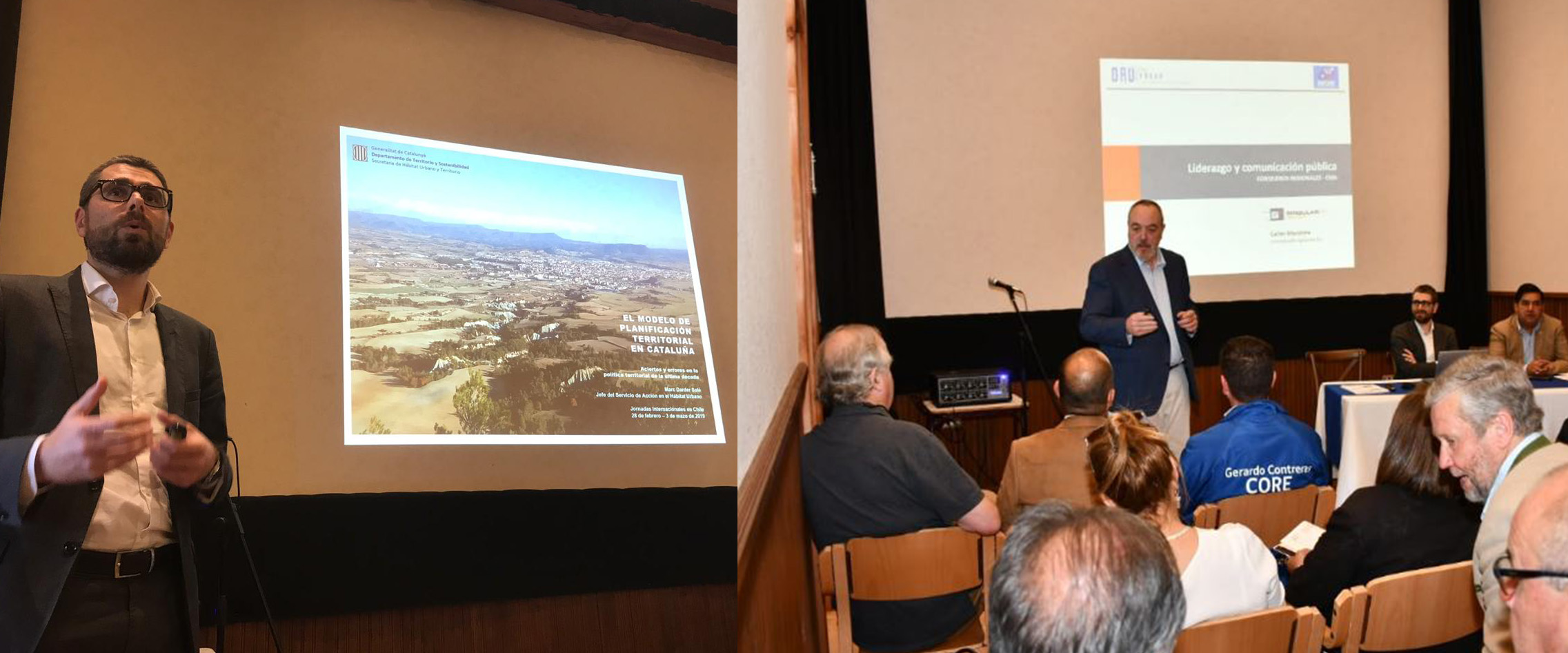Seminar on communication and territorial planning in Chile

On 28 February and 1 March, ORU Fogar and ANCORE (Association of Regional Councillors) organised a seminar on political communication and territorial policies in Santa Cruz, Chile. The seminar, which had been inaugurated by the President of the O'Higgins Regional Council, Carla Morales, and the President of Ancore, Marcelo Carrasco, was attended by Professor Carles Mendieta and the expert on territorial policy Marc Darder.
Professor Mendieta, a psychologist and consultant with extensive experience in organizational development projects, spoke about public communication within the framework of an open government. Public leadership," he explained, "drives changes in the community, but leadership is based on communication". In the professor's opinion, the keys to public communication today are: "Transparency, accountability and orientation of future actions. Transparency democratizes data access. Accountability makes it possible to justify the actions taken by governments. And strategy is the key to orienting future actions". In Carles Mendieta's opinion, all of this helps to maintain the reputation, "the most important challenge for managers on a global scale".
Marc Darder, who is Head of the Urban Habitat Action Service of the Regional Ministry of Territory and Sustainability of the Government of Catalonia, talked about territorial planning experiences and lessons learned. He also explained the process of drafting the New Catalan Urban Agenda, following the keys approved at the Habitat III Conference held in Quito by UN Habitat.
Marcelo Carrasco, president of Ancore, took the opportunity to point out that the seminar was taking place in the context of "a sustained effort to join the Organization of United Regions from Chile, which has helped to insert us in an international movement that leads decentralizing efforts around the world. Councillor Fernando Verdugo, in charge of international relations at ANCORE, reinforced the idea by saying that "ORU-FOGAR is a great ally in the organisational growth of Chile's regional governments".
The training experience has been supported by the School of Public Administration of the Generalitat de Catalunya.








































































